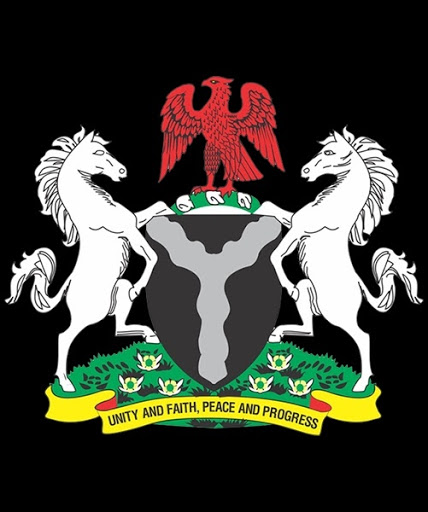In Nigeria, politics has long transcended the boundaries of governance and public service, evolving into a lucrative business venture that serves the interests of a select few. For many Nigerians, political office is not simply a platform for leadership or national development—it is a ticket to wealth, power, and influence. The intersection of money, power, and politics has become so deeply entrenched in the country’s fabric that it raises the question: Is Nigerian politics a means of public service, or has it morphed into a self-serving business?
The Business of Power
To understand how politics became a business in Nigeria, one must look at the incentives embedded in the system. Political officeholders enjoy a range of benefits—generous salaries, allowances, immunity from prosecution, and access to lucrative contracts. For many, entering politics is seen as a pathway to unimaginable wealth, much of which is siphoned from the public purse.
Political positions, particularly at the federal and state levels, come with enormous financial rewards that are disproportionate to the responsibilities they entail. Legislators, for example, are some of the highest-paid public servants in the world, earning millions in salaries and perks. Meanwhile, governors, ministers, and other political appointees control vast resources and wield immense power over state and national budgets. This financial allure has turned political office into a business opportunity rather than a service to the nation.
Money Politics: The Price of Power
At the heart of Nigeria’s political system is “money politics,” where financial resources determine the outcome of elections and political appointments. Aspiring politicians spend staggering amounts on campaigns, buying votes, and securing the loyalty of political godfathers—powerful individuals who have the financial clout to influence election outcomes. This reliance on money has distorted Nigeria’s democracy, making it nearly impossible for candidates with integrity but limited financial backing to succeed.
The cost of running for political office is prohibitive, leading many politicians to seek external funding from wealthy sponsors or engage in corrupt practices once in office to recoup their investments. This cycle perpetuates corruption and weakens democratic governance, as those elected to serve the people become beholden to the interests of their financial backers, rather than the electorate.
A Game of Patronage and Cronyism
In Nigeria, political power is closely tied to a system of patronage and cronyism. Those who hold political office often use their positions to reward loyal supporters and family members with government contracts, appointments, and other privileges. This creates a vicious circle where the benefits of political power are concentrated in the hands of a few, while the majority of Nigerians are left disenfranchised and impoverished.
This culture of political patronage has undermined the effectiveness of public institutions, stifled meritocracy, and eroded trust in governance. It also fuels a culture of entitlement, where political officeholders see themselves as business operators rather than public servants, driven by the desire to enrich themselves and their close associates.
The Impact on National Development
The business-like approach to politics in Nigeria has come at a steep cost. It has derailed the nation’s development efforts, as resources meant for public welfare are diverted for personal gain. The obsession with acquiring and maintaining political power has resulted in poor governance, a lack of accountability, and widespread corruption. Public services like education, healthcare, and infrastructure are underfunded and poorly managed because those in power are more focused on securing their own financial interests than delivering on campaign promises.
Nigeria’s economy, despite its vast potential, has been held back by this toxic political culture. Investments in critical sectors such as agriculture, technology, and manufacturing are stifled by policies designed to benefit a few elites rather than the broader population. The business of politics is effectively strangling the entrepreneurial spirit and innovation that Nigeria desperately needs to diversify its economy and create jobs.
Citizens’ Complicity and Responsibility
While it is easy to blame politicians for this state of affairs, Nigerians themselves play a role in perpetuating this system. Many citizens see elections as a transactional exercise, where they sell their votes to the highest bidder. In a country where poverty is widespread, this practice is often justified as a survival strategy. However, it weakens democratic accountability and ensures that corrupt politicians continue to dominate the political space.
Nigerians must also confront the culture of political godfatherism that sustains this business model. As long as powerful individuals control political outcomes and elections are not free or fair, the cycle of money politics will continue to thrive. Citizens must demand transparency, accountability, and merit in political processes if they are to reclaim the essence of democracy.
A Way Forward: Reclaiming Politics
For Nigeria to progress, politics must be reclaimed from the hands of those who treat it as a business enterprise. This begins with electoral reforms that curb the influence of money in politics and ensure that elections are free, fair, and transparent. Stronger regulations on campaign financing, vote buying, and political patronage are essential to break the hold of corrupt politicians.
Civil society, the media, and ordinary citizens have a role to play in holding political leaders accountable. By shining a spotlight on corrupt practices, demanding good governance, and encouraging political participation based on merit and ideas, Nigerians can begin to shift the political culture toward one of genuine service.
A Choice for the Future
The future of Nigeria depends on the choices its citizens and leaders make today. Politics does not have to be a business for the few; it can be a force for good, a means of creating a more just and prosperous society. But this requires a collective effort to dismantle the current system of money politics, patronage, and corruption.
Nigeria stands at a crossroads, and the path it chooses will determine whether it continues to be dominated by the business of politics or becomes a true democracy where leadership is about service, integrity, and national progress. The time for change is now, and it begins with Nigerians demanding more from their leaders—and from themselves.







